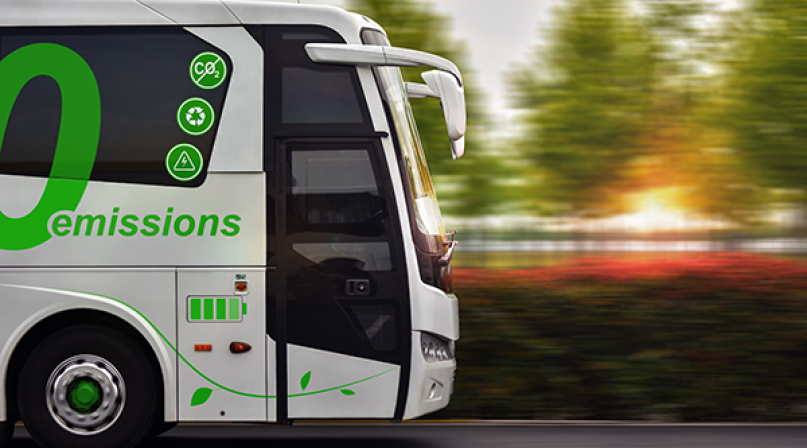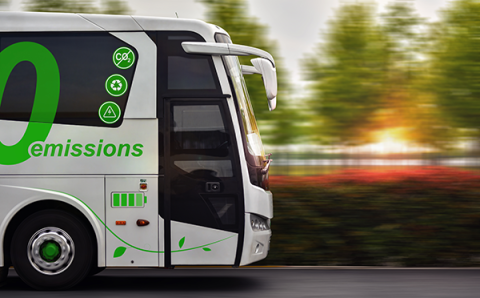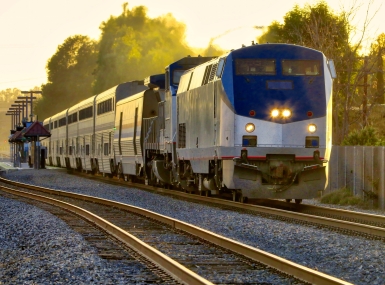Counties explore innovative transportation and infrastructure programs

Key Takeaways
Across the country, counties are working to bring innovations to transportation and infrastructure programs that help county residents. Here’s a sampling.
Electric bikes
In Colorado, Pueblo County will equip low-income essential workers with an electric bicycle as part of a new program aimed at providing reliable transportation options and reducing greenhouse gas emissions, the Pueblo Chieftain reported.
The Colorado Energy Office awarded $135,000 to the county through its Can Do eBike Pilot Program, enough to purchase 42 e-bikes which vary in price from $2,100 for a Class 1 model to $1,600 for a Class 2 bike.
That grant money doesn’t require any matching funds from the county.
The idea is for the bicycles to act as reliable, consistent transportation for working people who may not be able to afford a car or who cannot rely on the city’s public transportation.
Ferry system connects island to mainland
Sometimes, counties must advocate for funding of innovative solutions for county residents. In Hyde County, N.C., businesses depend on a state-run ferry system that takes tourists and residents to and from Hatteras to Ocracoke Island in the Outer Banks. Hyde County Commissioner Tom Pahl last week wrote in an editorial in the Ocracoke Observer that fully funding the ferry service is necessary to keep the region humming: “Revenue generated to State and Local government in the form of sales taxes, income taxes, property taxes and occupancy taxes is all tied to a healthy tourism economy – which in turn is tied to fully operating ferry service.”
Electric buses
In a step forward toward a zero-emissions vehicle fleet, Fairfax County, Va. will buy new all-electric buses, trash and recycling trucks and a box truck using $4.4 million in state grant funds.
The money will go toward four electric Fairfax Connector buses, four solid waste trucks and one medium-duty truck, as well as installing electric charging stations for these vehicles. These demonstration projects will advance the county’s efforts to electrify its fleet, helping officials learn more about operating and maintaining these vehicles.
“To cut carbon emissions we have to reimagine the way in which we travel,” said Fairfax County Board of Supervisors Chairman Jeffrey McKay. “As a county, we are already actively moving towards cutting our emissions from our public transit and this will move us closer to our end goal.”
Solar energy powering county buildings
Montgomery County, Md. encompasses 19 municipalities and is home to more than 1 million people. Christopher Brown, chief of Montgomery County’s Office of Energy and Sustainability, said in the past five years, solar panels have been installed atop libraries, recreation centers and a fire station. In deploying the technology, Brown said Montgomery County aims to set an example for other counties and cities about the benefits of solar programs.
“Municipalities and counties know that solar is the wave of the future,” said Warren Leon, executive director of the Clean Energy States Alliance. “They also want to encourage their residents and businesses to install solar. By putting solar on their own buildings, they are leading by example.”
New York counties band together to procure electric vehicles
Albany County Executive Daniel P. McCoy last week made a major announcement with Suffolk County Executive Steve Bellone for a new shared services partnership to procure electric vehicles together. Albany County now joins Suffolk and Westchester counties in a tri-county agreement that increases the combined purchasing power and will drive down the costs associated with transitioning the counties away from fossil fuel-powered fleets.
“Just last week, Albany County was designated a Climate Smart Community by New York State because we’ve demonstrated our commitment to preventing and preparing for climate change, including through our past investments in electric vehicles and charging infrastructure. Today, I’m proud to build on that progress by partnering with like-minded county executives through this innovative shared services plan,” said McCoy.
“Through this plan, all three counties will be able to transition to 100 percent electric fleets no later than 2030. Not only will we cut our emissions through this plan, we will also be cutting the price tag, which will ultimately benefit our taxpayers. It’s my hope that more counties will partner with us, and this progress will encourage those in the private sector to follow suit,” he added.
Electrified roads? Michigan will start pilot program
A one-mile stretch of road somewhere in Wayne, Oakland or Macomb counties will be picked to host the Inductive Vehicle Charging Pilot, according to the Detroit Free Press. The Michigan Department of Transportation was planning to issue a request for proposal late last month. It’s not clear how the technology would work, how soon the pilot project would be operational or how much it might cost, although this type of advance has been discussed by experts as one possible future for EV charging and testing has been tried in Europe.
Gondolas
Tired of traffic? How about boarding a gondola instead? Proposals have been made for gondolas in unlikely places (not ski resorts) including Los Angeles County and Arlington County, Va. The LA proposal would connect riders from downtown to Dodger Stadium in about 7 minutes according to the company behind the project. In Arlington County, Va., a gondola going across the Potomac River would connect the county to Washington, D.C.’s Georgetown neighborhood, bypassing traffic. The idea has been the subject of countless studies for the past five years, but county officials are looking at more realistic plans such as extending metro or adding new bus lanes.

Attachments
Related News

Counties directly eligible for $5.2 billion in competitive transportation grants
Counties are directly eligible for $5.2 billion in competitive transportation grants.

Counties directly eligible for $2.4 billion through USDOT rail safety improvement program
Counties are directly eligible for $2.4 billion through USDOT rail safety improvement program.

County Countdown – March 19, 2024
Every other week, NACo’s County Countdown reviews top federal policy advocacy items with an eye towards counties and the intergovernmental partnership.
